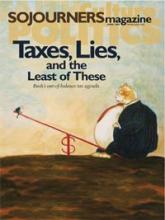Mutale, a 40-year-old Zambian peasant farmer, was standing in front of his two hectares of maize (corn), smiling broadly. He had just finished explaining to me that despite poor rains, he was able to raise a good crop to feed his family and to sell a bit of surplus for some extra cash to meet household needs. He looked so very different from the other farmers I had spoken to only a few days earlier. They were his neighbors, worked soil similar to his, and had experienced the same dry season. But they were not at all smiling! No good maize harvest for them.
The difference was that Mutale had planted his maize field using an organic agriculture approach, not relying on heavy doses of chemical fertilizer as his neighbors did. The organic agriculture approach - using cattle manure and decayed materials from nitrogen-rich plants such as legumes - was both much less expensive and much more efficient. During a drought season such as those Zambia has experienced periodically in recent years, it is important to keep as much moisture as possible close to the crops planted. But chemical fertilizers dont store this moisture as does organic matter in the soil. The organic matter retains excess moisture and slowly releases it to the crop in a natural way.
The smile on Mutales face taught me one more important reason for the wisdom of Zambias rejection of genetically modified organism (GMO) crops coming into our country. There simply are plenty of alternatives to the GMO approach vigorously pushed by the United States. The U.S. government
Read the Full Article
